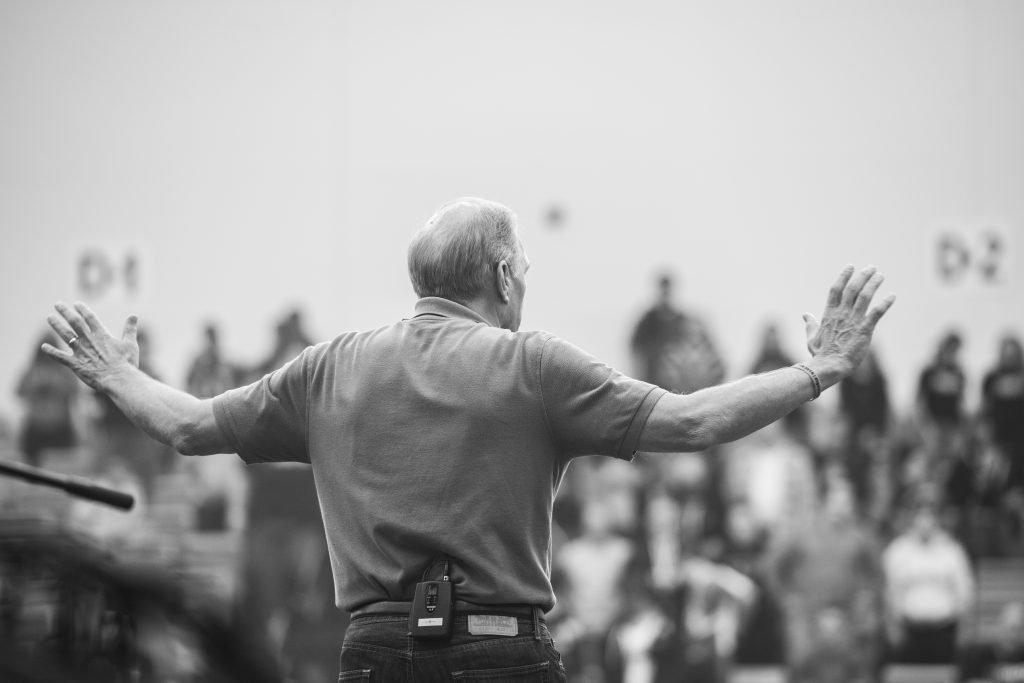I see a 20 to 50-year view of GNJ, and I am encouraged.
Dorothy smiled a lot. She was joyful and in the midst of challenges she was calm. She laughed and prayed a lot and she had a bright hopeful spirit. She sang in the choir, taught Sunday school and Vacation Bible School, and everyone enjoyed working with her. Dorothy was also courageous. She did not have an easy life, her husband died and she raised the children, she did not make a lot of money, and she lived in a neighborhood that had high crime and drug dealers. Dorothy was a believer, a passionate disciple with a deep faith. People wanted to work with Dorothy and they enjoyed being in her company. They felt closer to God when they were with her.
I find myself asking where did Dorothy’s passionate faith come from. Life and circumstances could have made her bitter, afraid, anxious. She rose above her circumstances and was sustained by her faith.
This is the second in a five-part series on building and growing a regenerative church conference that is constantly generating:
- Passionate faith
- Transformative Leaders
- Vital missional congregations
- Money, and lots of it for mission
God wants us to have passionate faith. John in the Book of Revelation prophesied what Jesus was saying to the church. To the church of Laodicea, Jesus said, you are neither hot nor cold but lukewarm so I will spit you out of my mouth. (Revelation 3:14-16) Think of a lukewarm glass of milk. Lukewarm churches and disciples are not appealing to Jesus.
I have more questions than answers about where passionate faith comes from but I believe the answers are in GNJ. Today I want to talk with you about regenerative passionate faith. Passionate faith is key to our future. Faith in God’s grace experienced through Jesus Christ is why we exist as a church. The more passionate our faith, the more we see the church we want to become.
Today there are a lot of people concerned about the future of the church. I am not. But I am concerned about the future of the mission and how the church will adapt and change today to be serving a robust mission in 20-50 years. I it begins with a passionate faith like Dorothy’s.
Passionate faith is not a particular theology although theology is important. I have encountered passionate liberals and conservatives as well as passionate disciples with a more centrist theology. I have also encountered churches and people with different theologies that are not passionate. It is not the type of theology they have but more about how they practice their faith.
Passionate faith is not an ideology. There have been many passionate Christians who have led us astray. For example, the KKK was started by a Methodist, the Holocaust was perpetuated by Christians. Balanced theology and the corrective Christian community is essential for healthy passionate faith.
Passionate faith is not a set of beliefs. What people believe is a reflection of their values and experiences. Creeds like the Apostles Creed and Nicene Creed were written at particular times in the church’s history to clarify what the church valued as important and critical to faith.
Passionate faith walks with people through their most difficult crises. When people are concerned about churches closing or denominations dying or splitting, those with passionate faith are more concerned about mission and sharing faith with children and youth. When others are talking doom and gloom, people with passionate faith are talking hope. Not pollyannaish syrupy faith and hope, but the hope that says I can be a difference in someone’s life, and the church can be the difference in the community regardless of its size or where it is or the condition it is in.
Passionate faith is not determined by the external conditions in which the church or an individual finds themselves, rather it is the inner conviction that God will see us through and the inner determination that I am important to God’s deep desires for the world. Healthy passionate faith is boundaried by a community that values difference, principles, inclusion, authenticity, transparency and integrity. This is what I witnessed in Dorothy and her church community.
But where does this kind of faith come from and how is it passed on? How do we build a GNJ that ignites passion and deep faith?
I think it has to do with life changing experiences, experiential learning, permission-giving leaders, and sharing stories of people who have the faith we want to see.
I am encouraged by what I see in GNJ’s future. I see and experience passionate faith in our leaders and disciples. This encourages me that and it is what will support and engage an important mission 20 to 50 years from now. This is why I am focused on creating the desire, support and processes to continue to regenerate passionate faith.
What increases your passion for learning about God, following Jesus Christ, sharing your faith with others and engaging in community mission? Send your responses to me at BishopJohnSchol@gnjumc.org. I will use what I learn from you with our GNJ leaders to create a regenerative faith throughout GNJ. Together we will regenerate passionate faith.
Keep the faith!
John
The United Methodist Church
Greater New Jersey

